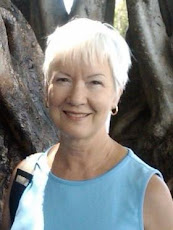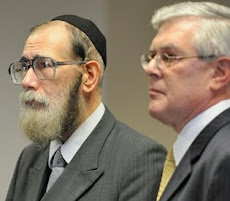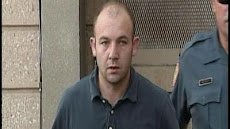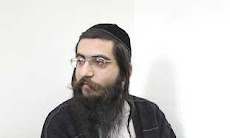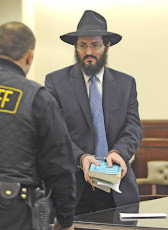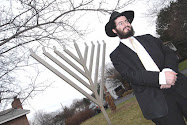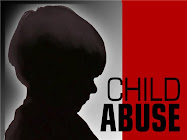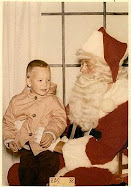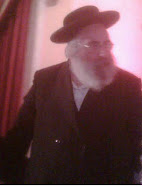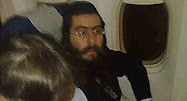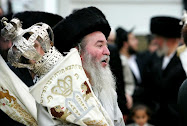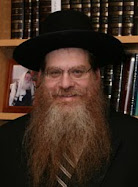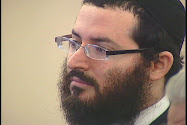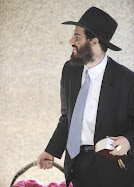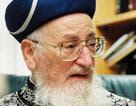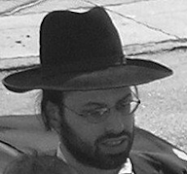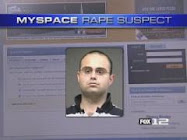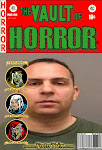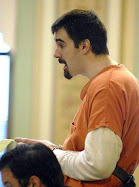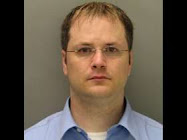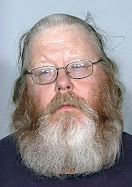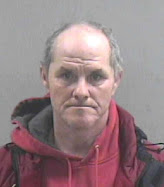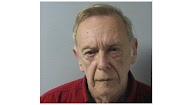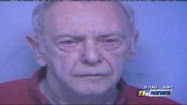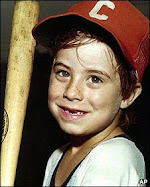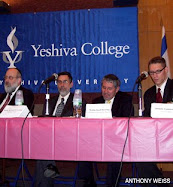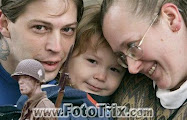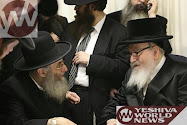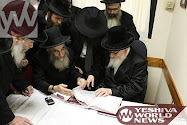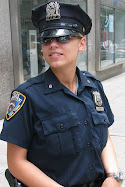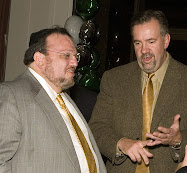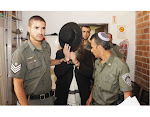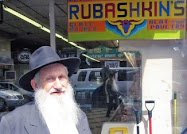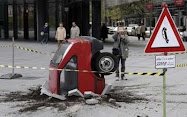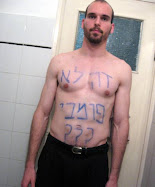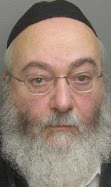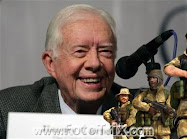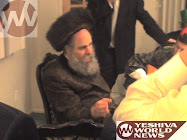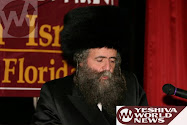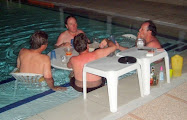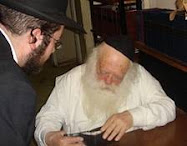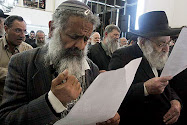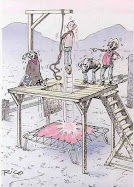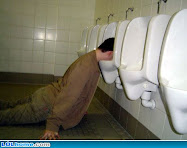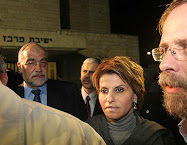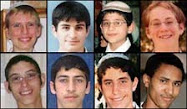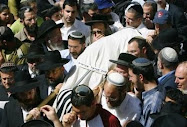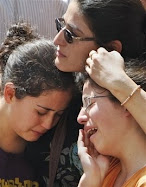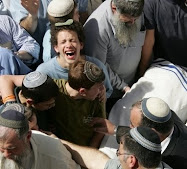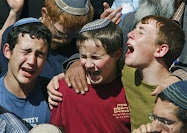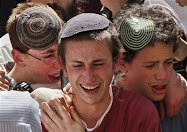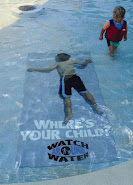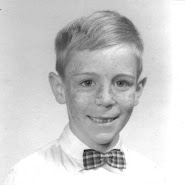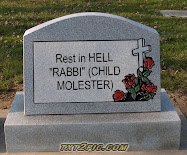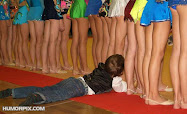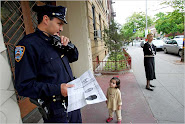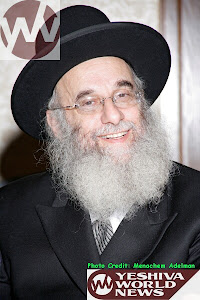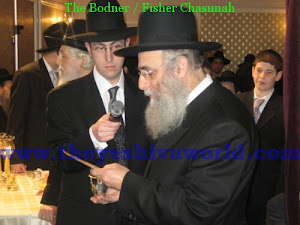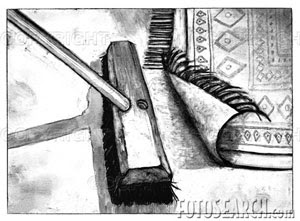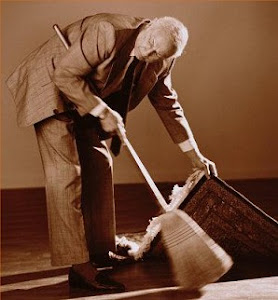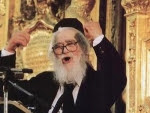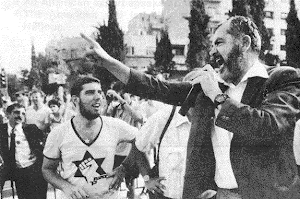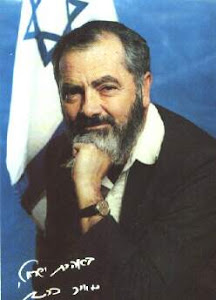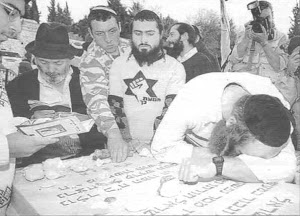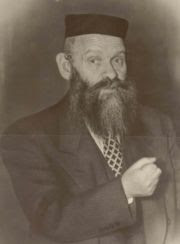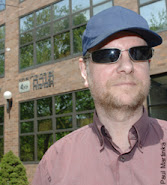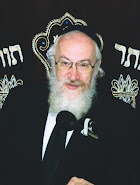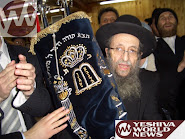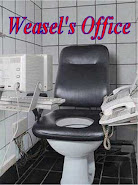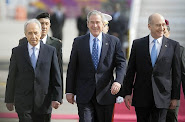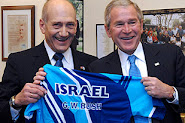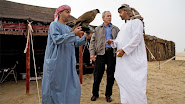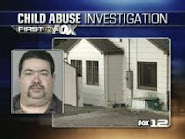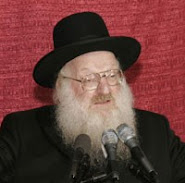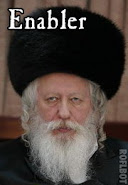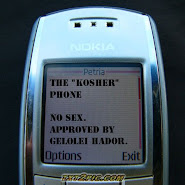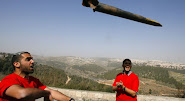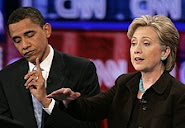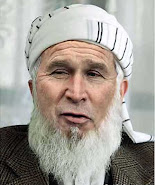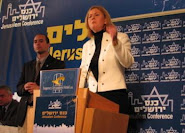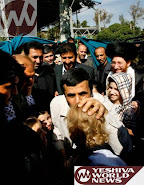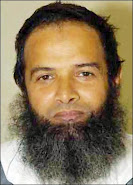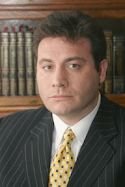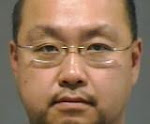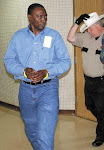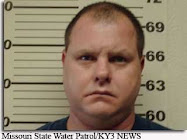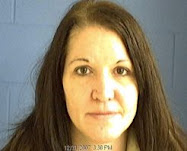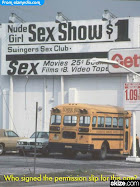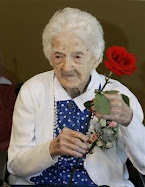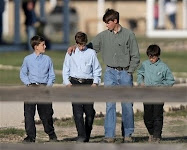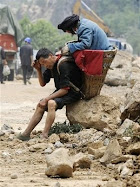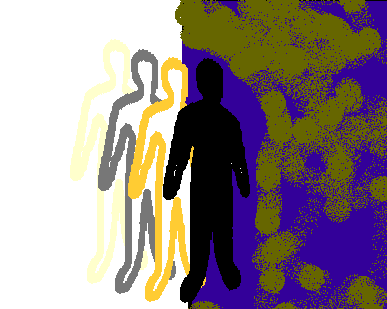
Rabbi's Abuse Victims Suffer Years Later
Phil Jacobs
APRIL 13, 2007
This article is part of a continuing series on child molestation within the Jewish community.
Photographer Murray Levin has looked through his camera lenses countless times, capturing Jewish weddings, bar mitzvahs and other joyous events. The one "picture," however, he can't stop focusing on isn't in his camera but in his 64-year-old memory.
 |
It's an image of a bar mitzvah lesson at the old Agudas Achim Synagogue. It's the shame that came along with his teacher, the now-deceased Rabbi Ephraim F. Shapiro, placing his hand down the 12-year-old Murray Levin's pants and fondling him.
With at least half a dozen maftir lessons came the rabbi's touch.
But it wasn't just Murray Levin.
The former Talmudical Academy principal, by one influential Baltimore rabbi's estimate, molested hundreds of times.
Bob Glickstein, 65, another survivor of Rabbi Shapiro's fondlings, figures it could be thousands. One thing that hasn't survived for Mr. Glickstein is any connection to Judaism. Living now in Vero Beach, Fla., this yoga instructor calls his bar mitzvah day "the worst day of my life, because I had to have Rabbi Shapiro there."
Mr. Glickstein married out of the faith, had a child and raised him as a non-Jew. He not so jokingly calls himself an "anti-Semite."
This was part of the cost of Rabbi Shapiro's actions.
Rabbi Shapiro, who died in April 1989, remains "alive" in the memories of so many. His collateral damage is everywhere. A weekly Kiddush of respected businessmen meets, and the topic invariably turns to the sexual molestation the rabbi heaped on many of them.
Several local rabbis recently expressed profound compassion for the victims, encouraging them to seek qualified, professional help. Indeed, at two major Orthodox synagogues on the last day of Passover, rabbis spoke from the pulpit on the issue of child molestation. The Vaad Ha Rabbonim in a meeting last week issued a statement to the community condemning sexual molestation and supporting survivors to seek help.
The following are interviews with three of the rabbi's "survivors."
If you are a survivor or if you know of someone who survived any sexual molestation, you have an audience here.
Murray Levin
The way Murray Levin sees it, sexual predators live in a world of "no risk and total reward."
Organized Judaism — be it congregations, schools or community groups — buries this news or distracts, he said.
"I don't think they see themselves getting apprehended," Mr. Levin said of predators. "They are bright people, great communicators and intellectual. And they will continue until we bring out the trauma they cause. We have to create an environment that shows them they can't continue without severe consequences."
Mr. Levin held his molestation in for decades. He does not want anyone else to hold back. Most of all, he sees it as a calling that older survivors must do what they can to protect all future generations, even if it means "teaching little children to speak out."
"Families," he said, "are going to have to speak up. We have to become the predator of the predators."
Mr. Levin was molested by Rabbi Shapiro and by one other person connected to the Agudas Achim Synagogue in the 3600 block of Reisterstown Road near Cold Spring Lane. He was studying for his bar mitzvah, which would take place at Shaarei Zion Synagogue.
"Rabbi Shapiro was grooming me with French kissing and masturbation," said Mr. Levin.
Mr. Levin kept it all quiet. He didn't know that there was a possibility of someone else involved until four years after his bar mitzvah. He was watching a football game on TV with a couple of friends. The friends pretended to tackle one another like football players, and one of them randomly said, "Rabbi Shapiro stuck his fingers in my ass."
That was Mr. Levin's first clue that he wasn't alone.
In between his molestation, Mr. Levin — who would lead junior services in shul and who described himself as a gifted and talented child, captain of the safety patrol, and concert master of his high school orchestra — began to fall internally. His image of self, his trust in boundaries and other people failed.
To this day, even though he makes a great deal of his living photographing the Jewish community, Mr. Levin wonders what might have been with his life had it not been violated.
"Many of us are still hiding," he said with a quiet voice.
"To me, anybody could be a pedophile," he said. "Everybody who works with or who is near our children need to be scrutinized. I want everyone to be aware of who you pass responsibility of your children to. I would like to see these predators at least be given an opportunity for rehabilitation, to be useful. But they have to be compelled to seek help. Also, people need to know who the pedophiles are, if they are alive or if they are dead. "
Bob Glickstein
He doesn't want much to do with Judaism.
He can still "feel" the texture of Rabbi Shapiro's mustache against his face when he was being kissed.
Bob Glickstein's Jewish "upbringing" ended during his bar mitzvah lessons with Rabbi Shapiro at Agudas Achim.
"He used religion to molest young boys," said Mr. Glickstein.
Mr. Glickstein talks candidly in a Vero Beach coffee bar called Cacophony. He has only told a couple of people about his molestation.
But he wants the word out there now.
"Rabbi Shapiro knew what he was doing," said Mr. Glickstein. "He had a boys group he called the Akiba Boys of Agudas Achim. They would do chores around the shul. But meanwhile, he was molesting them. He had a system of bar mitzvah lessons that would feed into his molestation. Everything he did was about molesting boys.
"It was a horrific experience," he added. "He would call me into his office. He'd start playing with you."
It was difficult for Mr. Glickstein to continue. He sat up straight, perhaps finding confidence in a yoga posture, and he remembered some more.
He called his bar mitzvah the worst day of his life, because Rabbi Shapiro was in attendance. The rabbi was also at his father's funeral.
Mr. Glickstein kept it to himself, yet he used it as part of his influence to start looking into other religions, such as Eastern religions. A short marriage to a non-Jew resulted in a son, whom he raised out of the faith.
There was nothing joking about this comment on his face. "I am basically anti-Semitic," he said. "I like Jews, but I just need to stay away from them [as a result of his molestations].
"There's always been a lot of fear and anger in my life that comes as a result of Rabbi Shapiro's actions," he said. "There's never a time that passes that I don't think about him. There's anger and there's fear."
Mr. Glickstein said that he's always had difficulty since the molestations, which happened four to six times, when it comes to authority figures and establishing close relationships.
David Framowitz
David Framowitz was an 11th-grade Talmudical Academy student from Brooklyn, N.Y., boarding in the school's dormitory. He said he was molested by Rabbi Shapiro on three separate occasions.
When Rabbi Shapiro attempted a fourth try, the high school junior threatened to kill the rabbi.
Mr. Framowitz, 49, remembers that Rabbi Shapiro was the dormitory counselor. He would lie in the beds of students, reaching to fondle them. And it was common he'd try to kiss them on the lips.
Mr. Framowitz, who now lives in Israel, was a major source for a New York Magazine article last year based on his $20 million federal lawsuit against Rabbi Yehudah Kolko and Yeshiva Torah Temimah of Flatbush in Brooklyn. (Mr. Framowitz said Rabbi Kolko molested him when he was around 12.)
"I became a student for seven months [at] TA in Baltimore," said Mr. Framowitz. "I had Rabbi Shapiro attack me three times. The last time I told him, ‘You touch me one more time, I'll kill you.'
"He was the dorm counselor. He'd walk around and French kiss boys, poke them with his fingers. He'd lie across you when you were in bed. He'd play with you."
Mr. Framowitz would tell his mother, who insisted he leave TA immediately. None of the other boys he knew wanted to discuss Rabbi Shapiro.
He then gave several reasons why people stay so silent. "There's a fear factor," he said. "There's a worry over shidduchim [finding a match for marriage]. ‘What are the neighbors going to say? It can't happen to a nice Jewish family. A rabbi doesn't do these things, especially a frum rabbi. There's something wrong with the boy. It's not the Jewish way, it's not the frum way. It can't be.'"
Last September during a visit to Baltimore, Mr. Framowitz decided to pay an unscheduled visit to Talmudical Academy. It was his first time there since 1974.
He met with Rabbi Yehuda Lefkowitz, the school's executive director. "I told Rabbi Lefkowitz that I was a victim of Shapiro's," said Mr. Framowitz. "I told him I thought there should be some sort of monetary scholarship fund to pay for the therapy of the victims."
Rabbi Lefkowitz informed the school's board, and grimly said "nobody took it as a joking matter."
Mr. Framowitz said he thinks there are well over 1,000 people who were molested by Rabbi Shapiro.
"The guy was a real sicko," said Mr. Framowitz. "He was worse than Kolko. I've made it through my life, but this is something you don't forget ever. It's always with you, always there. And if I'm not busy or not doing things, my mind wanders back to those days."
Rabbi Shapiro Is Deceased. Why Print This?
"He can't defend himself."
"He's deceased, what difference does it make now?"
"This is an embarrassment to his family."
These are just three of the reasons why we were asked not to print the name of the deceased Rabbi Ephraim F. Shapiro. Pikesville area mental health professionals offer suggestions to several concerns.
• "He can't defend himself."
He died in 1989. He was eulogized before 700 people as a "man of deep religious devotion, Torah scholarship and gentle kindnesses, to his family, his students and to many in the community."
There are estimates of hundreds of molestation victims who weren't able to "defend" themselves while the rabbi was alive. There are young men whose lives were changed forever because of his acts. Some of these men are more figuratively "dead" than Rabbi Shapiro will ever be. They need our help, compassion and therapeutic assistance. It wasn't their fault. They can perhaps heal now.
• "He's deceased, what difference does it make now?
Survivors may find answers and empowerment if they know that their molester was actually a survivor of Rabbi Shapiro's. Mental health professionals are legally obligated to report deceased perpetrators to Protective Services. The ensuing investigations focus on all of the perpetrator's survivors, and the subsequent possibility that they have or are currently molesting children as well. Given the reality that survivors are vulnerable to molesting others, and the cycle continues to perpetuate itself, it is imperative that the names of all perpetrators –– dead and alive –– are disclosed.
• "This is an embarrassment to his family."
The models of discussion and behind-the-scenes declarations against molestation are not working, suggest one therapist, especially in the Orthodox community. At best, a person is taken away from a setting of teaching children, or sometimes sent out of town. Arrests, the courage of a survivor to charge his molester, don't happen a great deal of the time.
Names.
Perhaps if a pedophile knows that this is now about names and his association to names of innocent relatives. Perhaps, just perhaps, that will keep another child safe for a day.
Who Was Rabbi Shapiro?
Rabbi Ephraim F. Shapiro was the former principal of Talmudical Academy. His April 1989 funeral services were held at the Old Court Road yeshiva.He was 72 when he died of amyotrophic lateral sclerosis, or Lou Gehrig's disease.
Rabbi Shapiro was the son of Russian immigrants. He was born on New York's Lower East Side. A graduate of the Rabbi Jacob Joseph School and Yeshiva University, Rabbi Shapiro came to Baltimore in 1941 as spiritual leader of Congregation Agudas Achim.
He left in 1955 to become rabbi of a congregation in New Rochelle, N.Y. Two years later, he returned here to become the rabbi at the Tifereth Israel Anshe Sphard Congregation on Dolfield Avenue. He held that position until 1968.
In addition, he served as principal of TA, as well as working as a guidance counselor and a dorm counselor. When he retired in 1982, he was honored for 25 years of service to the yeshiva.
E.J. Dopkin says she, too was molested by Rabbi Ephraim Shapiro decades ago.======================================
This is Ephraim Shapiro's son, Yisroel Shapiro; who is following in the footsteps of his infamous father.
Case of Rabbi Yisroel I. Shapiro

(AKA: Yisroel Shapiro, Israel Shapiro, Joseph Shapiro)
Baltimore, MD
Background HistoryMay 28, 2003 -- The Rabbinical Council of America (RCA) maintains that reporting acts or suspicions of child abuse is not mesirah and commits itself and its members to reporting acts or suspicions of child abuse as required by civil law. Unfortunately the rabbis of Baltimore have never adopted these policies.
One of the many traditions in the orthodox community of Baltimore is not to report sex crimes to law enforcement or Child Protective Services (CPS). The reason was for fear that doing so would start another pogrom (persecution of the Jewish people).
Instead the custom has been for rabbis to handle things quietly and discreetly. It's also not uncommon for signs to be posted by concerned community members warning others of the dangers the alleged sex offender poses to children.
This is exactly what happened a few years ago. Allegations were made that a teacher by the name of Rabbi Yisroel Shapiro had molested children. The pious rabbis of Baltimore decided they could handle the "situation" on their own. A decision was reached. The rabbis at the bet din of Baltimore (Jewish religious court) believed Yisroel was guilty. The agreement was that Yisroel Shapiro would have a career where he no longer had contact with children. Yisroel Shapiro went from being a teacher at one of Balitmore's private Jewish schools to becoming a butcher.
Israel Shapiro is married and had children living in his home. Child Protection Services (CPS) was never notified, nor was a police report made, making it virtually impossible for there to be an official investigation, possible arrest and or trial. Without the proper law enforcement officials being notifide, it makes it impossible for Yisroel Shapiro ever being listed on the national sex offender registry.
As a reaction, a small group of concerned citizens created flyer's and posted signs in the community in hopes of preventing another child from being molested, yet not much has happened since then.
One of the issues that we all need to be aware of is the fact that Yisroel Shapiro's father was a prominent orthodox rabbi in Baltimore. Besides being a synagogue rabbi, his father was the principal of a the Talmudic Academy of Baltimore. His father was connected to may other prominent orthodox rabbis in Baltimore and worldwide. Recently one of Baltimore's deep dark secrets was made public. Yisroel Shapiro's father, also had a problem with his "urges". Rabbi Ephraim Shapiro had been allegedly molesting boys for over fifty years. One survivor stated he was sure thate Ephraim Shapiro molested hundreds if not thousands of bar mitzvah age boys.
The way the ultra-orthodox rabbis of Baltimore operate is very similar to the way the Catholic church deals with allegations of clergy sexual abuse. It appears the rabbis do what they can to silence the victims. It also seems as if they rabbis are more concerned with protecting their own personal images and assets, then they are in keeping the Jewish children of Baltimore safe.
Can you imagine the PR nightmare the rabbis of Baltimore were faced with? How would they do damage control?
Many survivors of Rabbi Ephraim Shapiro have stated that they were sure the rabbis of Baltimore were very aware of that he was an "alleged" child molester. A few years ago the rabbis were faced with the fact that the son of this prominent rabbi, was also allegedly molesting children. Instead of doing the right thing and notifing the police and child protective services, they chose to handle the matter on their own.
Keep in mind that Yisroel Shapiro's brothers also hold very prominent positions in Baltimore and around the country. The tradition has always been to protect family members of sex offenders over protecting family members of sexually abused children. As a community we need to understand that family members of both offenders and those who have been sexually violated need support. They are not responsible for the actions of the offender, except if they willingly cover up these crimes -- which could lead to more children being abused. The problem is that all parties involved need counseling. Sex offenders need to be held accountable for their crimes and can receive treatment in prison and often will need residential treatment after they are released. Survivors of sex crimes need both rape victim advocacy and counseling.
It's unknown at this time if the children who were allegedly victimized by Yisroel Shapiro ever received rape crisis counseling. It is also unknown if Yisroel Shapiro ever received sex offender treatment by a qualified mental health provider.
There is no statute of limitations on crimes against children. It's not to late to file a police report and have him investigation. If you or someone you know was victimized by Yisroel Shapiro please contact your local rape crisis center. They are there to protect your rights and can help you make a police report. Rape crisis center's offer free rape counseling and legal advocacy.
One of the local rape crisis center's near the Jewish community in Baltimore is:
STTAR Center
(Sexual Trauma Treatment, Advocacy and Recovery Center)
Main Number: 410-290-6432
24-hour Hot-line: 866-723-3003
Failure to protect the vulnerable is a violation of the following verse: Thou shalt notstand idly by the blood of your neighbor (Lev. 19:16) -- "Whoever desecrates the name of Heaven in private will ultimately be punished in public, whether the desecration was committed unintentionally or intentionally." Any conspiracy to conceal information about sex crimes will ultimately be made public, creating an even greater hillul Hashem. -- Despite historic debates and arguments, the consensus of contemporary Jewish religious authorities is that such reporting is religiously mandatory. (Rabbi Mark Dratch).
If you suspect that a child is being abused or neglected in the state of maryland, you should call: (800) 332-6347
October 24, 2004
The following flyer was posted in the Jewish community in Baltimore as a way to warn community members of the allegations made against Rabbi Yisroel Shapiro.

Case of Rabbi Ephraim F. Shapiro
(AKA: Ephraim Shapiro, Frank Shapiro, Ephraim Frank Shapiro)

Rabbi - Congregation Agudas Achim, Baltimore, MD
Rabbi - New Rochelle, NY
Rabbi - Tifereth Israel Anshe Sphard Congregation, Baltimore, MD
Former Principal - Talmudical Academy (TA) - Baltimore, MD
Accused of molesting several boys for over a fifty year period. Rabbi Shapiro was born in New York on July 22, 1916, and died April 7, 1989, in Baltimore, MD. His name is listed on this web page as a way of validate and empowering those he allegedly sexually abused.
Rabbi Ephraim Shapiro was a graduate of the Rabbi Jacob Joseph School and Yeshiva University, New York, NY. He moved to Baltimore in 1941 to serve as the spiritual leader of Congregation Agudas Achim. In 1955 moved to New Rochelle, NY and then returned to Baltimore in 1957 to serve as rabbi at Tifereth Israel Anshe Sphard Congregation and also the principal of the Talmudical Academy until retiring in 1982. While working at the Talmudical Academy, Rabbi Shapiro worked as a guidance counselor and dorm counselor. Rabbi Ephraim Shapiro died in 1989 of amyotrophic lateral sclerosis also known as Lou Gehrig's Disease.
=====================================
Have Baltimore's Rabbis Learned Their Lesson?
By Failed Messiah
http://failedmessiah.typepad.com/failed_messiahcom/2007/04/have_baltimores.html#comments
Phil Jacobs of the Baltimore Jewish Times wrote a piece that detailed the years of rabbi-on-boy sexual abuse perpetrated by Baltimore's Rabbi Ephraim Shapiro. He interviewed many survivors and published their stories. This exposé is what many people believe provoked the haredi rabbis of Baltimore to issue the letter (found in a post a few below this one) that urges people to go to the proper "authorities" to report abuse, and notes rabbis are not trained to investigate claims or handle rehab.
Now Baltimore's leading rabbi, Moshe Heinemann of Star-K fame, who signed that letter, has written another letter and, The Awareness Center's Vicki Polin reports via email, posted it in his synagogue. Here is what that letter says:
"Based on last week's vicious article (regarding rabbi Ephraim Shapiro) in the Baltimore Jewish Times and other articles of the past, it is my opinion that it is totally inappropriate for this publication to be found in any Jewish home." -- Rabbi Moshe Heinemann
In other words, Rabbi Heinemann is punishing Phil Jacobs and the Baltimore Jewish Times for reporting on haredi criminal activity and the ensuing years of coverups.
Baltimore's Orthodox community is very large and influential. Rabbi Heinemann's ban, which surely will quickly spread beyond his synagogue to others and, more importantly, to advertisers – especially to those advertisers using Star-K supervision.
It is my opinion that – in light of Rabbi Heinemann's thuggish behavior – we should enact a ban of our own. From now on, do not eat any Star-K products. Tell your local supermarket not to buy products with Star-K supervision. Let's do everything in our power to teach Rabbi Heinemann the lesson he sorely needs to learn.
============================================Letter from Rabbi Moshe Heinemann
Letter by Rabbi Moshe Heinemann - April 15, 2007
Note from Vicki Polin - April 17, 2007
The Following letter was posted in Agudath Israel of Baltimore by Rabbi Moshe Heinemann as a reaction to the Baltimore Jewish Times publishing a story regarding Rabbi Ephraim Shapiro. During a meeting with Rabbi Heinemann he disclosed that his issue with the Jewish Times was with the fact that Rabbi Ephraim Shapiro had passed away and that he could not be offered the opportunity to defend himself. He also added that over the years the Baltimore Jewish Times has been repeatedly "Orthodox bashing". He went to on to say that this was not fair to the family members of Shapiro who did nothing wrong, and it would hurt family members chances of getting a good shiddach (marriage partner). Please note that Phil Jacobs, author of the series on sexual abuse in the Jewish community and is the senior editor of Baltimore Jewish Times is an orthodox Jew.

Baltimore Jewish Times - anonymous insider
By Anonymous Insider
April 18, 2007
Truth be told:
Up until the last minute, the Baltimore rabbis were hoping we would cancel the story, and they would therefore find no need to send out their letter.
We were urged not to go to press, but Neil decided to push forward. The final straw was UOJ's (blogger - Unorthodox Jew) publishing of the abridged version of the article. They knew they were in trouble and mailed out the letter right after yom-tov.
UOJ is indeed correct, the rabbis were coerced in to the mailing, they would never have mailed it out if not for the story being published.
Rabbi Heinemann's conduct exemplifies the worst of the rabbinate by posting the shameful note in his shul. He should be severely chastised for his double-speak.
We will continue to publish and publicize these crimes and will not be intimidated.
============================================To Forgive or to Shun
A child-porn-convicted rabbi tries to make amends as rabbi sex-abuse cases roil the Jewish community
By JUSTIN CLARK
Wednesday, March 28, 2007 - 4:30 pm
�I�m a registered sex offender,� he told his date, heart banging in his chest.
As an Orthodox Jew, Heschel wasn�t accustomed to going to confession. Seven years ago, he was a highly respected rabbi at Mount Freedom Jewish Center, an Orthodox synagogue in Randolph Township, New Jersey. But he was also a lifelong porn addict, and his addiction peaked after he was shown how to use the synagogue�s computer. Two weeks before the High Holy Days, the synagogue�s computer technician discovered two pictures of child pornography that Heschel had viewed on an adult Web site. By enlarging the images, Heschel had unwittingly downloaded them to his Web browser�s temporary-file cache.
�It was 2000,� Heschel says, explaining why the synagogue�s elders went directly to the FBI. �That was during the height of the lawsuits against the Catholic Church.�
Heschel�s nine months at Fort Dix Federal Correctional Institution, one of which he spent in solitary confinement, were only the beginning of his downward spiral. Seven years after those fateful mouse clicks to illegally download child porn, Heschel has abandoned his last name (Heschel is his middle name) and lives an impoverished life in a tiny Venice apartment, decorated with the pictures of his three children who live on the East Coast. In Los Angeles, his potential employers and landlords usually assume that �registered sex offender� means rapist or child molester. He has been denied jobs and turned down for apartments. One of the most difficult moments came when a Los Angeles synagogue initially told him he was no longer welcome � even as a congregant.
As Los Angeles Archbishop Roger M. Mahony becomes embroiled in new claims that he knew about � and failed to stop � sexual abuse by a California priest, a number of high-profile sex scandals involving rabbis here and elsewhere have created a simmering fear among believers.
�We in the Jewish community are recognizing that we aren�t immune from these problems,� says Rabbi Mark S. Diamond, executive vice president of The Board of Rabbis of Southern California � one of the area�s two main rabbinical bodies, along with the Rabbinical Council of California. �For too many years I�ve heard Jewish people say this is not our problem, it just affects other faiths and denominations. We�re seeing otherwise.�
Diamond was horrified, for instance, to see his close colleague Rabbi David Kaye ensnared last year on Dateline NBC�s �To Catch a Predator.� (Kaye was sentenced to six and a half years in prison for attempting to seduce an actor who, working with Dateline, posed as a 13-year-old boy.) Around the same time, the principal of one of Los Angeles� most popular Jewish schools, Rabbi Aron Tendler, stepped down amid allegations that he had sexually abused teenage girls. A few months later, Rabbi Mordechai Gafni, a popular leader in the Jewish Renewal movement, lost his chair at Los Angeles� Stephen S. Wise Temple Elementary School after confessingto molesting several of his former female students.
Diamond says all of these episodes left him �very, very pained.� He isn�t alone. A growing concern about unreported sex abuse � and what to do with offenders when they�re caught or come forward � has reshaped alliances within the local Jewish community and created bickering behind closed doors.
So discovered prominent Rabbinical Council member Rabbi Yitzchok Adlerstein last month, after he hosted a seminar dealing with the growing number of sex-abuse allegations surfacing on Jewish blogs. Adlerstein said he felt torn between the need to listen to victims and his colleagues� concern that the Internet has simply created a venue for l�shon hara, or anonymous slander.
But he found even bringing up the subject at all was tricky. Says Adlerstein, �I immediately got flak from colleagues asking me, �Why are you talking about the stuff when you know it�s going to get distorted?��
The discussion has led to some positive results. In 2002, when Heschel began speaking about his struggle to overcome porn addiction and re-enter society after prison, he and Diamond helped organize a five-part seminar on the problem of sexual addiction among the clergy. It was the first time in years, says Diamond, that leaders of the historically estranged Board of Rabbis and Rabbinical Council found themselves sitting down at the same table.
Heschel says the discussion was especially needed in the Orthodox community, where the topic is dealt with less openly because of the shame attached to it. To rectify that, Heschel organized a 12-step group for addicted rabbis at the local rehabilitation center Beit T�Shuvah in Culver City, where he voluntarily resided before his sentencing and stint at Fort Dix.
Soon after, the Aleinu Family Resource Center � the primary family-advocacy group for Orthodox Jews � convinced 21 of 26 local Los Angeles yeshivas to agree to guidelines that encourage the reporting of sexual abuse by rabbis. (Council director Deborah Fox declined to identify the nonparticipating yeshivas to the L.A. Weekly, but calls their refusal to sign the guidelines an example of the lingering resistance to addressing the subject of sex abuse.)
Dealing with sex-abuse allegations can be even trickier than preventing the abuse in the first place. Like priests, rabbis suspected of sexual abuse have been shuffled from one temple to another. Unlike priests, however, rabbis cannot be defrocked, which poses a tricky question that Jews must face: how to deal with the fallen.
For its part, Diamond�s organization will soon send a team of chaplains to serve Jewish patients at the 1,500-bed Coalinga State Hospital, a recently constructed facility for sexually violent predators. California�s first new mental hospital in 50 years focuses not on curing its patients but preventing relapses � a more realistic goal, practitioners say. At the same time, Diamond admits, nonviolent turnaround cases like Heschel�s present an equally serious dilemma: After seven years of seeking treatment, telling his story and raising awareness about sex offenses, should Heschel be allowed in the pulpit?
Beit T�Shuvah�s founder, Mark Borowitz, doesn�t hesitate. He says that the Torah commands believers to forgive those who make a genuine t�shuvah, or repentance, through admitting to their crimes and ensuring the crime will not happen again. In practice, that means rehabilitation programs such as 12-step, through which Borowitz himself, a former convict and author of a best-selling addiction memoir, The Holy Thief, says he found salvation.
But salvation, in a religious sense, is one thing. In a medical sense, it means something else. �We don�t say that word in 12-step programs,� says Borowitz, when asked if Heschel is �cured.� �We say �recovered.��
Still, not everyone is comfortable with phrases like �recovered� as applied to child-porn felons like Heschel, and other sex offenders. Vicki Polin, a trained social worker who runs a Jewish version of a sex-offender registry, The Awareness Center, raised the alarm after discovering in December that Heschel had started an Internet-based addiction-counseling service.
�Allowing [Heschel] to provide counseling to others with sex addictions is totally inappropriate,� Polin posted on her Web site in December. �To allow him to advertise in Los Angeles Jewish Journal is horrifying.�
Heschel is obviously torn about whether to defend himself, reasoning that the community itself must decide if he should be forgiven, or simply resign himself to the unlikelihood that he will find universal acceptance.
�Had I robbed a bank or been guilty of second-degree murder, I would have served my sentence, been on probation, and then been free,� says Heschel in a rare moment of frustration. �My reality is that having viewed these images of child pornography, I am considered a sex offender for life.�
That is why Heschel offers his services discreetly over the phone, mostly to Orthodox Jews on the East Coast who have also suffered from Internet porn addiction. Heschel says that if his callers weren�t allowed to remain anonymous � he knows them only by their client number � most would never come forward at all. Borowitz credits Heschel with bringing nearly two dozen individuals into Beit T�Shuvah�s Sex Addicts Anonymous program.
�As with alcohol or drug addiction,� Borowitz says, �the best sexual-addiction counselors are those who are in recovery themselves.�
Nevertheless, Heschel says he misses having the rabbi�s pulpit, and regularly sends out his r�sum� � without success. �When I send my r�sum�s, it�s my curiosity,� he says. �Is this group willing to accept someone who has made genuine t�shuvah?�
After much agonizing, the synagogue where he worships decided to do just that, and allowed him to become an elder. For Heschel, it was a moment of bliss.
And what about his recent date over coffee?
�I was surprised at how empathetic she was,� Heschel says, turning upbeat. �It turned out to be a five-hour date.�
 | |||||||||||||||
| The plague of silence When an Orthodox victim dares to reveal her story, society reacts with harsh and scathing accusations. If she should file a complaint, everyone often rallies around the abusive authority figure. The plague of sexual abuse can be found everywhere Ayelet Cohen Vider Young Orthodox girls report incidents of sexual abuse three times as much as non-Orthodox girls. Incest among religious families is reported with the same frequency among religious and non-religious girls and women. For years we thought that sexual abuse occurred among the wanton secular society. We dress modestly, do not touch each other and are protected from all harm. Over the past few years the wall has begun to crack. Quietly and secretly the stories are beginning to be heard with hesitant voices and great worry and fear. It is the fear to blacken the face of this quality society of which I am a part, the fear to harm a family member, an older brother, a respected principal, an esteemed rabbi. It is also the fear that I will harm my chances to be married. They are missiles of fear and terror, of silence and of closed eyes. “I wore dirty clothes, I neglected my outer appearance to an extreme, and I did not allow any teachers or counselors to touch me. In the beginning they left me alone. Then a wise counselor arrived and asked and understood, and I told her about my brother. He learns in an esteemed yeshiva. Every free weekend and vacation when we were home together, he would come into my room at night and get into my bed and touch me all over…This is what she told the principal, he promised to take care of it but he did not do anything”. Orthodox victims carry the burden of abuse alone for long periods of time. It is difficult for them to share their situation with others, first of all because it is difficult for them to digest the abuse; the contradiction between the honored and good person in whom they believed and the aggressive and abusive person they have uncovered. Secondly they have a hard time revealing themselves as abused. In a small familial society where everyone knows everyone else, if you tell one person it is as if you have told a hundred and you will become the conversation of the day. When the victim dares reveal her story and break the wall of loneliness, society reacts with harsh and scathing accusations. A high level of idealization, especially of male spiritual authority figures, characterizes religious society. The image of the tzaddik (righteous person) is a factor of spiritual and honored importance. He represents the values to which we aspire as a holy society - Torah knowledge, good deeds and a high spiritual level. When a complaint is filed the masses rally around the powers of authority. He receives wide support from the men and women around him and since he is a powerful man he is surrounded and connected to powerful people. In a confrontation between the accuser and the accused the temptation to stand with the accused is great. The abuser, in his denial of the act, speaks to the universal desire not to see badness, not to hear of it or speak of it. On the other hand, the accuser is asking society to share her painful journey. Her individual pain and society’s pain in shattering this idealized figure is a type of smashing of the tablets. She requires involvement and action, and she demands the ability to face hard contradictions. This is a harder request and therefore few answer it. Most would prefer to stay out of the story in the best case, or enlist for the good of the abuser in the worst case, and the accuser remains alone again. Now she is no longer alone for everyone is now a partner in her story, her nakedness is exposed in public, but against the doubts, accusations and the lack of the desire to believe her she stands alone.
Our collective memory as a society teaches us that even distinguished educators and esteemed rabbis have fallen in this matter and that this can be done by anybody to anybody, whether it is a family member, a maintenance man, driver, principal, teacher, caretaker, doctor or rabbi. Our awareness of this serves as immunization to this happening again - for the individual abuser, the individual abused, and we as a society. Ayelet Vider Cohen is a clinical psychologist, and active in “Kolech” treating victims of sexual abuse Case of Rabbi Eliezer Eisgrau Principal of the Torah Institute Baltimore, MD
Rabbi Eliezer Eisgrau is accused of physically and sexually assaulting one of his daughters. There have also been allegations that two families were "run out of Baltimore" because they wanted to go to secular legal authorities to deal with the accusations of child abuse against Rabbi Eisgrau. Rabbi Eisgrau is currently the principal of the Torah Institute of Baltimore, MD. The Baltimore Orthodox establishment stated that they have investigated the charges and found them completely baseless. A Baltimore police detective attempted to investigate the abuse complaints regarding Rabbi Eisgrau. He stated that he did not find enough evidence to persuade the district attorney to bring charges against Rabbi Eisgrau. The detective also disclosed that he never encountered such opposition to a child abuse investigation from a community as he encountered in Baltimore's Orthodox community. FYI:
Case of Rabbi Yaakov Menken (AKA: Rabbi Kenneth Lloyd Menken, Ken Menken) Baltimore, MD Kiruv Worker Founder and Director of Project Genesis -Baltimore, MD Author - The Everything Torah Book Serious allegations have been made against Rabbi Yaakov Menken which include sexual harassment and professional sexual misconduct. Menken's alleged modus operandi (M.O.) is of becoming a father figure to vulnerable young women and eventually manipulating them into having sexual contact with him. Rabbi Yaakov Menken is a married orthodox rabbi. In 2005 Rabbi Yaakov Menken had a discussion with Rabbi Shmuel Kamenetzkyi and confessed to having sexual contact with a very young woman he counseled. He basically blamed the survivor, stating "she came on to me". December 24, 2006
In honor of the survivors of Rabbi Yaakov Menken (AKA: Ken Menken), The Awareness Center is bringing the following information to your attention. The goal is to prevent any more individual from becoming the next victim of a sexual offense. Rabbi Yaakov Menken is the founder and director of Project Genesis, a Kiruv organization (Jewish outreach). He has put together an educational program that is funded by the Jewish Education Enhancement Projects (JEEP), which obtains its funds through the Jewish Federation of Baltimore (The Associated). The Awareness Center, Inc. is asking that you contact both organizations and demand they stop funding programs connected to Rabbi Yaakov Menken. We are also asking that you contact those who are advertising Menken's programs. Explain to them that they are putting unsuspecting women at risk of harm. Rabbi Yaakov Menken confessed to Rabbi Shmuel Kaminetsky that he had sexual contact with a young religious woman. At the time of the abuse this particular survivor was undergoing "spiritual counseling" by Rabbi Menken. The survivor was bearly out of her teens at the time she was sexually manipulated. Kenneth Menken was nearly in his forties. He was also a married, haredi (orthodox) rabbi. The young woman describes her experience with Menken as clergy sexual abuse (professional sexual misconduct) During a conversation with Rabbi Kaminetsky, Kenneth Menken stated the young woman "manipulated him into having sexual contact." Project Genesis has put together the following lecture series, which is funded by The Associated of Baltimore. Each time this program is advertised puts another unsuspecting woman at risk of harm -- by being "counseled" by Rabbi Menken. Please demand that all organizations stop funding activities organized by Yaakov Menken. Also demand that newspapers and magazines refuse to advertise events connected to him. The goal is to prevent one more unsuspecting individual from becoming the next victim of a sex crime. The Awareness Center is also asking everyone to contact the following speakers. Please help inform them of Rabbi Menken's past history of alleged clergy sexual abuse (professional sexual misconduct). All inquires of his confession should be directed to Rabbi Shmuel Kaminetsky. (215) 477-1000. Please ask Rabbi Shmuel Kaminetsky make a public statement regarding Rabbi Menken's confession and require Yaakov to be in therapy with a highly qualified psychotherapist whom specializes in working with sex offenders. The Awareness Center is also asking that Ken Menken financially compensate the survivor for the pain and suffering he has caused her. Click Here: For Entire CALL FOR ACTION Rabbi Shmuel Kamenetzky Talmudical Yeshiva of Philadelphia 6063 Drexel Road Philadelphia, PA 19131 Telephone: (215) 473-1212 Fax: (215) 477-5065 If you or someone you know has had similar experiences, please contact your local rape crisis center and or The Awareness Center, Inc..
| ||||||||||||||










































